Innovative drama workshops teach schoolchildren about materials chemistry
The ‘Animate Materials’ series promotes STEM education and careers as well as encouraging consideration of ethics, write Cap-a-Pie's Brad McCormick and Katy Vanden.
Theatre company Cap-a-Pie was first introduced to Professor Steven Cobb in 2021 and learned about animate materials – materials that can act, adapt and even have autonomy. Inspired by the Royal Society’s ‘Animate Materials’ report, we decided that future animate materials with the possibility for decision-making power could provide an excellent ethical dilemma for young people to grapple with.
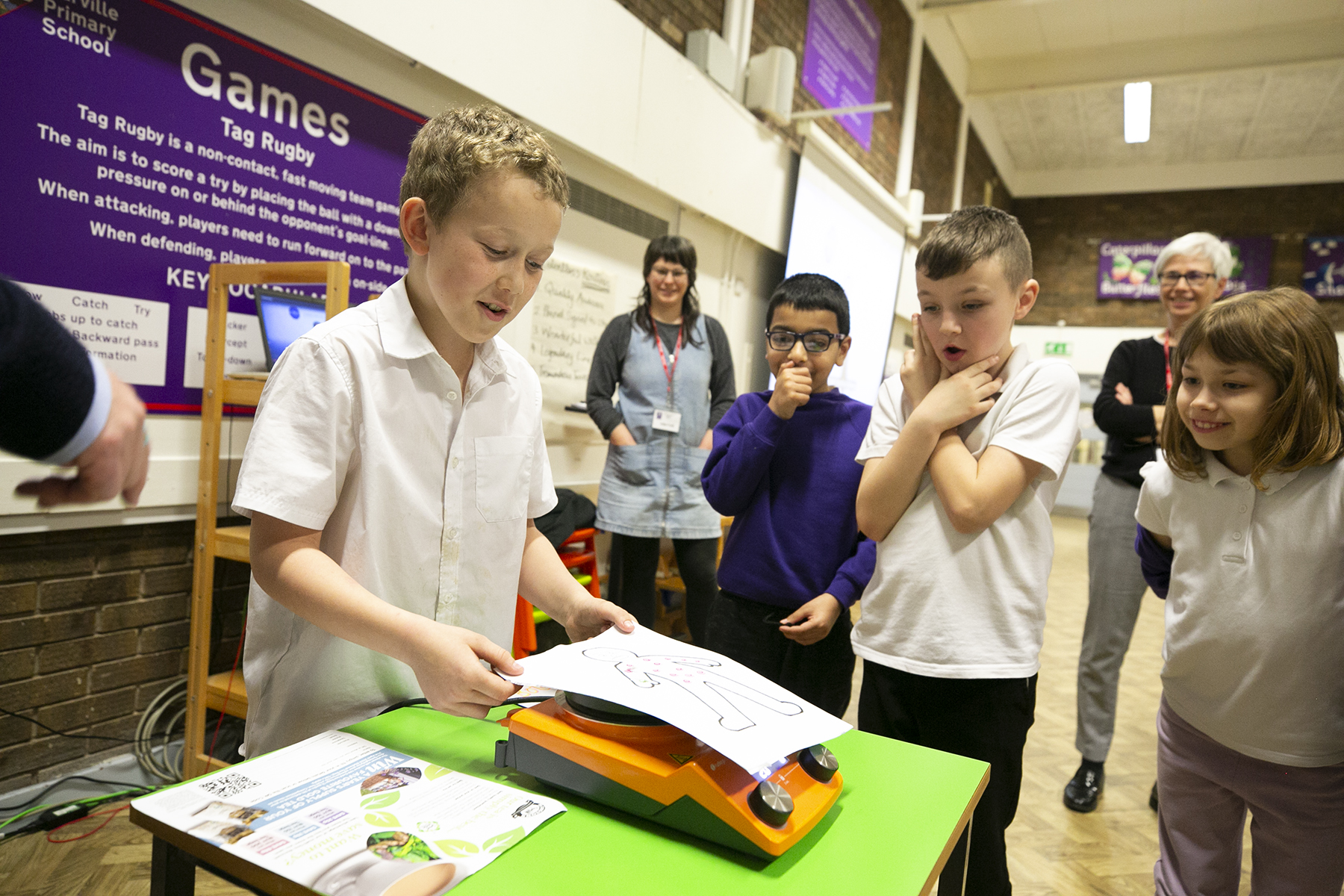
Katy Vanden, Ulrike Thomas and Students from Carville Primary School Picture: Mark Savage Photography
Thanks to the Outreach Fund from the Royal Society of Chemistry, we were able to create a workshop series combining science, drama and learning in role in a fictional immersive experience. Three Key Stage 2 classes were asked to place themselves in a near future where truly animate materials were possible. Playing the role of scientific advisers to the Government, the groups had to decide whether to sanction the roll-out of ‘medical nanobots’ – tiny animate materials that would move around the body searching for and fighting infection.
We wanted the young people to learn about the real-life science of materials and the ethical questions around autonomy, technology, and our relationship to our bodies, as well as promoting STEM education and careers.
The Outreach Fund allowed us to make high-quality resources. The classes watched specially made short films featuring two characters – one from the medical technology company developing the nanobots; and one who used to work for the company but has serious concerns about the new technology.
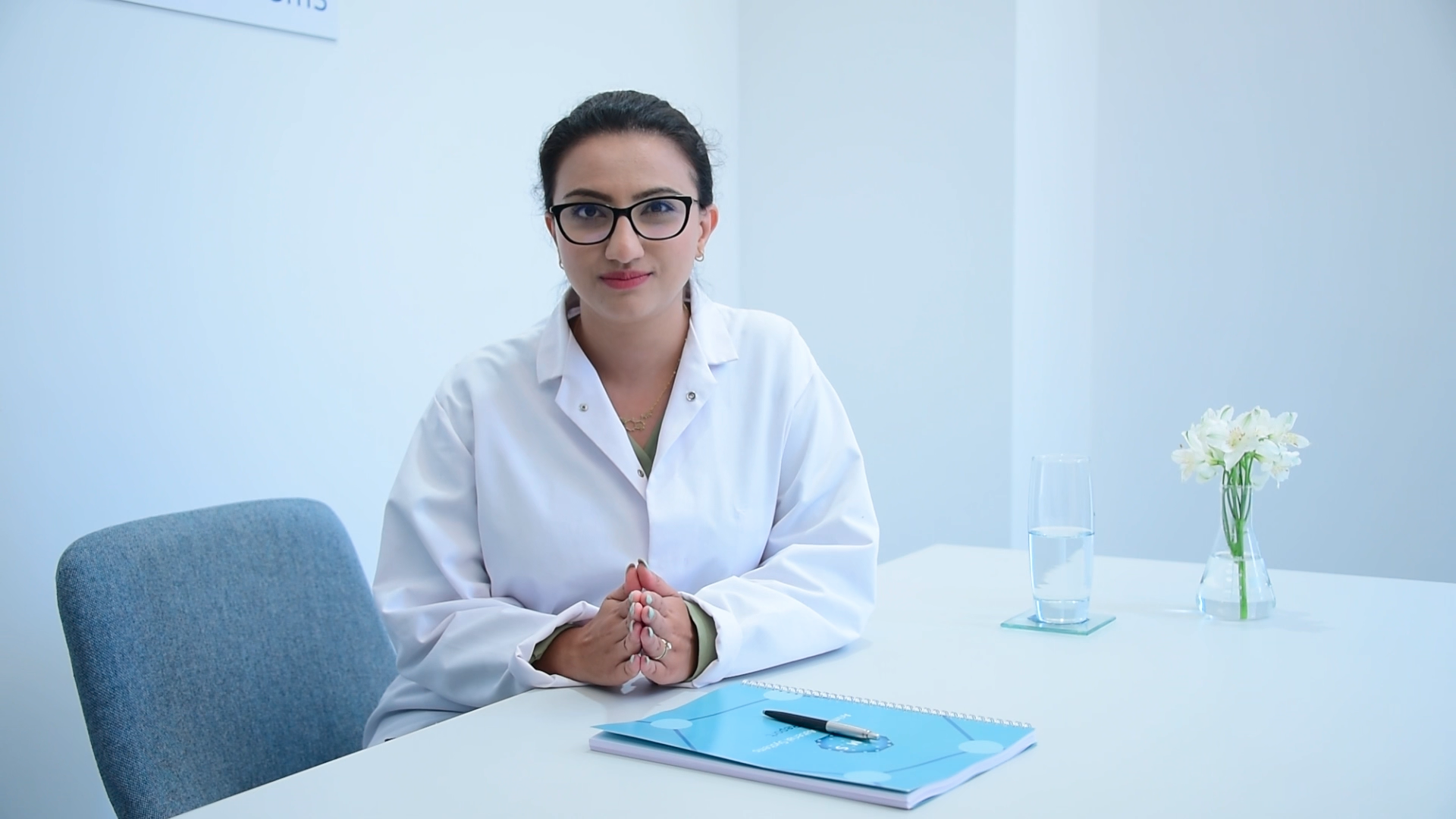
Mahsa Hammat Bahary in Animate Materials Picture: Lindsay Duncanson
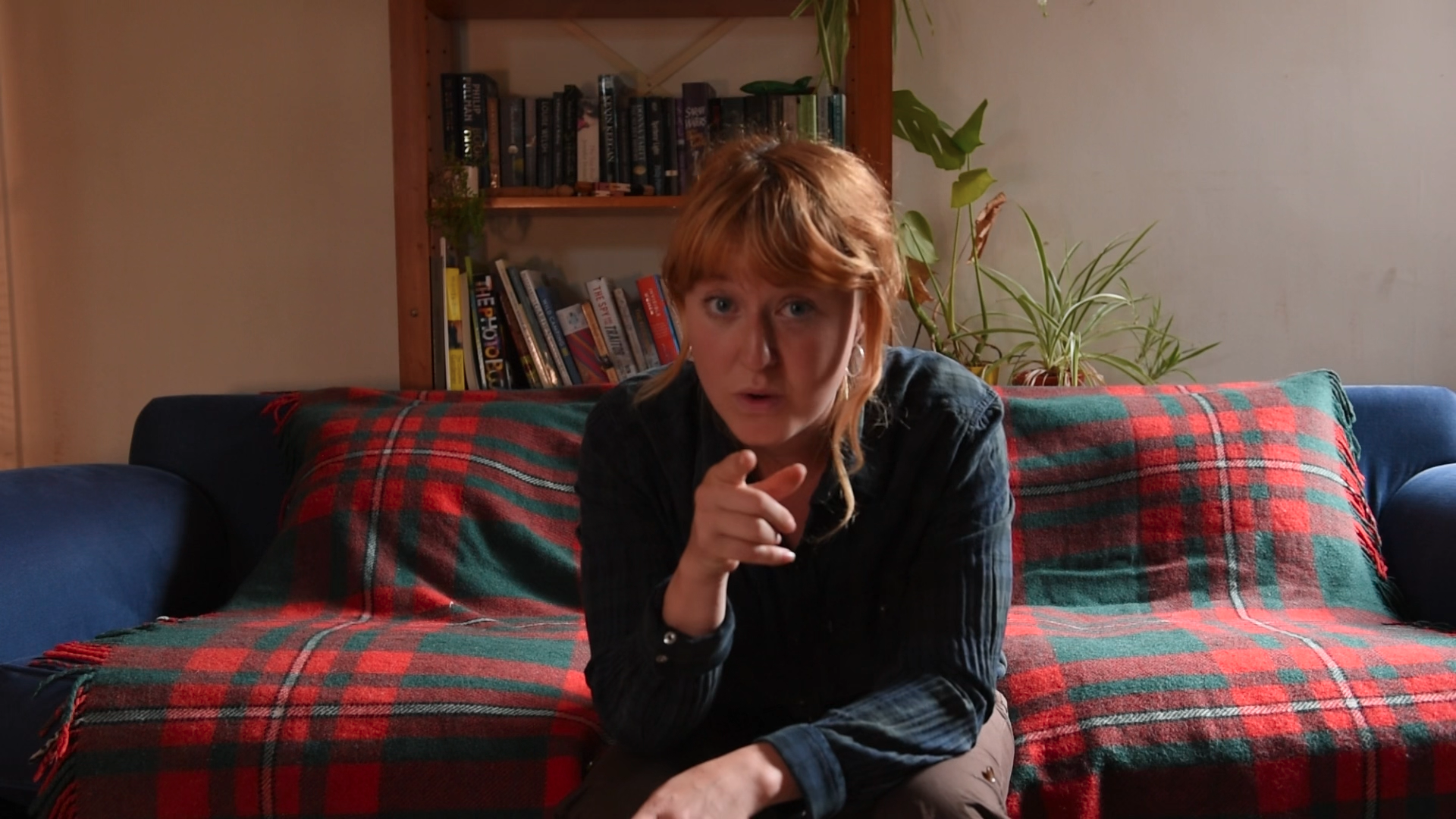
Jeannie May Adam in Animate Materials Picture: Lindsay Duncanson
One activity saw students take part in an invention challenge based on the Royal Society’s provocation, ‘The Future of Stuff’. Students were asked to design their own animate material. Some memorable examples include:
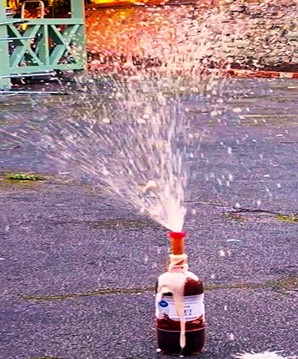
A garment that responds to bullies and can calm the wearer down with soothing music Picture: Cap-a-Pie
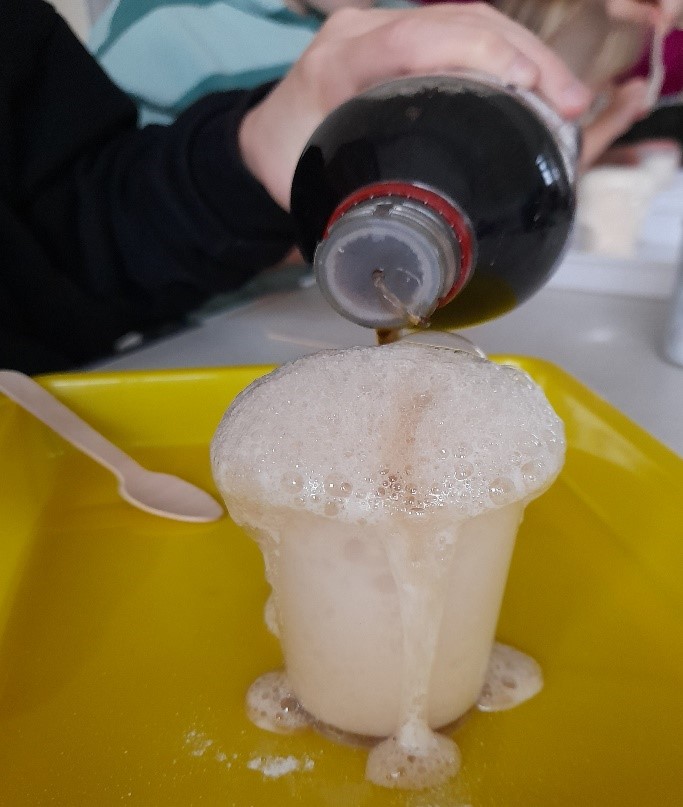
A phone screen that can sense a dramatic moment and automatically takes a selfie. Picture: Cap-a-Pie
One of our collaborators, Prof Cobb, who teaches at Durham University, said: “The ideas that the students put forward around what animate materials they would create showed their imagination but also a clear understanding of what animate materials are. Some of my favourite suggestions are not so far from what researchers in the field are currently trying to do!”
At the end of all three workshops, the majority of students were against the medical nanobots. Some were uncomfortable about having something foreign inside of them, worried that it could potentially take over their brains and influence behaviour. Others felt that despite the obvious rewards, the risks were too great.
The workshop series is now part of our offer to local schools that they can choose to have for their classes throughout the year and we look forward to bringing it to more young people.
“You learn a lot from this,” said one participant. “It’s less writing but it’s still going into your brain.”
We would like to give thanks to our academic collaborators from Durham University, Prof Cobb and Dr Lorraine Coghill; all the young people and teachers who took part; and our funders at the Royal Society of Chemistry who made the project possible.